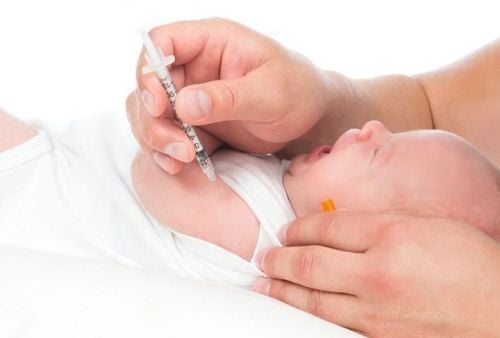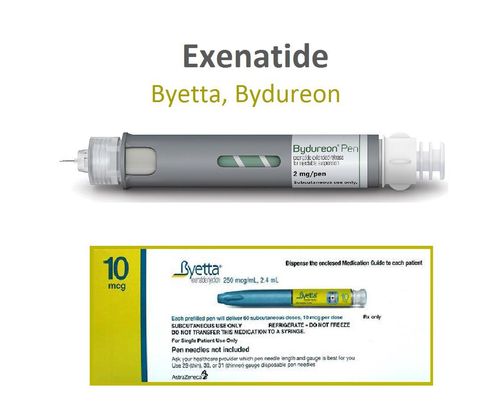This is an automatically translated article.
The article was consulted with Specialist Doctor I Dang Thi Ngoc Chuong - Department of Pediatrics - Neonatology, Vinmec Central Park International General Hospital.Diabetes is a disease that occurs not only in adults but also in children. Diabetes in children, especially neonatal diabetes, is a hormonal disease related to abnormal and elevated blood sugar metabolism. Therefore, the disease causes many serious consequences, affecting the kidneys, blood pressure, cardiovascular and life threatening children.
1. Diabetes in babies
Newborn diabetes, also known as diabetes mellitus, is a disorder of blood sugar metabolism that causes an increase in blood sugar levels. Neonatal diabetes can occur during preterm birth, infection, perfusion, or it can also be caused by medication. Neonatal diabetes does not usually occur in infancy but occurs before the baby is 6 months old or 12 months old.Neonatal diabetes is classified into 3 types, which are:
Transient neonatal diabetes Persistent neonatal diabetes Neonatal diabetes combined with syndrome Diabetes in children is commonly type 1 diabetes, which is type 1 diabetes. when the pancreas stops producing insulin. With this type of diabetes, children often have the disease due to genetic causes in about 10% to 20%. Type 1 diabetes in children is often not detected early, but when the symptoms are obvious, the disease is discovered. Children who are overweight, obese or are following an unscientific diet are more likely to develop type 2 diabetes.
2. Symptoms of diabetes in babies
Diabetes in infants has the following manifestations:2.1 Thirst, sucking a lot and urinating a lot

When an infant urinates, it does not mean that the child's urine contains a lot of sugar. On the other hand, when there are diseases such as urinary tract infections, genital infections or the cause of secretions from the genital tract that increase white blood cells, red blood cells, and protein, it also leads to the baby's urine having ants. bu.
2.2 Feeling hungry Intense and prolonged hunger pangs are common with diabetes in children, even after they have just finished eating. The reason is that the lack of insulin severely reduces the amount of sugar in the body, reducing the energy needed for the body.
2.3 Tiredness Due to a decrease in energy, children are often tired and lack energy.
2.4 Unusual weight loss Although the child will eat more because of the rapid feeling of hunger as in neonatal diabetes, the tissues in the child's body will not receive energy from food sources but will take stored energy from tissues body fat. As a result, the child will lose weight abnormally.
2.5 Blurred vision When blood sugar increases, it will draw fluid from the vitreous tissue of the eye to correct the focus of the baby. If diabetes in children is not treated promptly, it will lead to damage to the retinal blood vessels, which can cause blindness.
2.6 Sleeping more than usual This is also a symptom of diabetes in babies when babies sleep 3 to 4 hours more than usual.
2.7 Children are easily agitated, irritable, and cry a lot. Signs such as agitation, irritability, and crying a lot that are not related to pain are also abnormalities that need to be taken care of by parents and taken to a doctor.
2.8 Other symptoms Several other symptoms appear in neonatal diabetes when the disease has progressed to a severe stage, including:
Seizures Coma Lethargy Rapid breathing Infection Abdominal pain Loss of consciousness.
3. Prevention of neonatal diabetes

Have a method and a scientific diet Regular health check-up for children, especially tests only blood sugar of newborns Have a reasonable exercise regimen
4. Treatment of neonatal diabetes
To successfully treat diabetes in children, the most important thing is to manage the child's blood sugar. Treatment of neonatal diabetes includes:Maintain optimal blood sugar levels Ensure the growth of the child To achieve two treatments, during the initial period of treatment, the child must have blood tests as well as multiple injections during the course of treatment. day. For long-term treatment, children need genetic testing to get the right treatment. For insulin injections, some children need insulin injections while others need only oral treatment.
However, for neonatal diabetes is a disease with mainly genetic causes, so early detection, early diagnosis and genetic analysis will contribute to effective treatment. When the disease is detected too late, it will lead to the disease progressing faster and causing dangerous complications. Besides, the cooperation of the patient's family also plays a very important role in the treatment of neonatal diabetes.
5. Conclusion
Neonatal diabetes is a rare condition and is usually detected by the age of 6 months. Because it is difficult to diagnose because the symptoms are not clear, diabetes in infants needs to be tested for blood sugar, genetic analysis for early diagnosis and treatment.Pediatrics department at Vinmec International General Hospital is the address for receiving and examining diseases that infants and young children are susceptible to: viral fever, bacterial fever, otitis media, pneumonia in children, .... With modern equipment, sterile space, minimizing the impact as well as the risk of disease spread. Along with that is the dedication from the doctors with professional experience with pediatric patients, making the examination no longer a concern of the parents.
Please dial HOTLINE for more information or register for an appointment HERE. Download MyVinmec app to make appointments faster and to manage your bookings easily.














